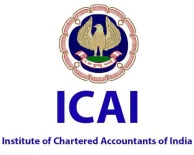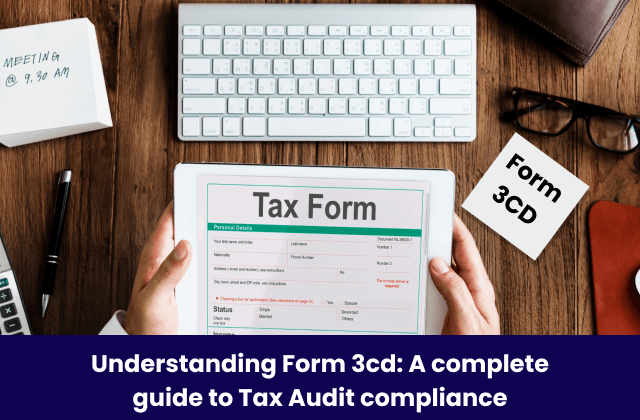| Criteria for Eligibility of Tax Audit | |||||||||
|---|---|---|---|---|---|---|---|---|---|
|
|||||||||
|
| Category | Previous limits | Revised limits |
|---|---|---|
| Sec 44AD: For small businesses | Rs. 2 crore | Rs. 3 crore* |
| Sec 44ADA: For professionals like doctors, lawyers, engineers, etc. | Rs. 50 lakh | Rs. 75 lakh* |
*The increase in limits is subject to the condition that 95% of the receipts must be through online modes.
If the cash transactions are up to 5% of the total gross payments and receipts, then the threshold limit is increased up to Rs 10 Cr from FY 2021-22.
The proviso raises the threshold limit for individuals conducting business from Rs. 1 crore to Rs. 10 crore, provided that:
(i) the aggregate of all receipts in cash during the previous year does not exceed five percent of such receipts; and
(ii) the aggregate of all payments in cash during the previous year does not exceed five percent of such payment.
 Type of business
Type of business
Certain types of businesses are more likely to undergo a tax audit. For example, businesses that deal in cash transactions or have a high rate of non-compliance are subject to more frequent audits.
| Applicability of Tax Audit as per Income Tax Act, 1961 |
|---|
|
|
|
Changes in Tax Audit Rules & Its Impact
Section 11 Trusts
The threshold limit for tax audits has increased from Rs. 5 crores to Rs. 10 crores for businesses with less than 5% cash transactions.
Penalty
The penalty for non - compliance with tax audit rules has been increased from 0.5% to 0.75% of the turnover or gross receipts.
Extension of due date
The due date for tax audits has been extended to 31st January of the assessment year.
Reporting requirements
The tax audit report must now include additional information such as details of international transactions, tax demands and refunds.

| Consequences of Non - Compliance with Tax Audit |
|---|
|
|
|
|
| Penalty for Non - Compliance |
|---|
|
|
|
|

Objectives of Tax Audit
Verification of Tax Returns
One of the primary objectives of tax audit services is to verify the accuracy of tax returns filed by taxpayers so that they do not have to face any legal consequences.
Identification of Discrepancies
Another important objective of a tax audit is to identify any discrepancies or inconsistencies in the taxpayer's financial statements or tax returns and rectify them on time.
Detection of Tax Evasion
A tax audit is also aimed at detecting any attempts by the taxpayer to evade or avoid paying taxes. This can include examining the taxpayer's business operations, transactions, etc.
Improvement of Internal Controls
A tax audit can help identify weaknesses in the taxpayer's internal controls and accounting systems. This can allow the taxpayer to ensure future compliance with tax laws and regulations.
Why BC Shetty & Co CA Professionals For Conducting Tax Audit
BC Shetty & Co has been offering tax audit consulting services to customers for quite a while now. We are now a part of the International Accounting Association and follow all the quality standards while offering our services to the customers. You can also contact us for bookkeeping services.
We only hire qualified accountants who are highly experienced atm llp registration and other accounting services and they will offer you the exact services as per your requirements. All our files are peer-reviewed by our partners to reduce the chances of any kind of errors. We will also provide you with a standard audit report per your requirements.

Why Choose BC Shetty & Co?
Customer Care - Dedicated point of contact with quick response
Accuracy-3 Layered Quality Review and external Peer review
Expertise Chartered Accountants with years of experience
Regular Updates - Newsletters with latest updates
Dedicated Client Portal
Weekly Status Updates
Related Blogs
AFFILIATIONS




FREQUENTLY ASKED QUESTIONS
Who is eligible for a tax audit?
A tax audit is required by:
- Business taxpayers with a turnover of more than Rs. 1 crore
- Professionals with gross receipts of more than Rs. 50 lakh
Can a tax audit report be revised?
Yes, a tax audit report can be revised under certain circumstances. An experienced chartered accountant can help you revise your audit report.
What is the purpose of a tax audit?
The purpose of a tax audit is to ensure that taxpayers maintain proper books of accounts and comply with the Income Tax Act provisions.
How to file a tax audit report?
The tax audit report needs to be filed electronically using the Income Tax Department's online portal.
What is the Due Date for Tax Audit as per Section 44AB?
The due date for filing the tax audit report as per Section 44AB is September 30th of the relevant assessment year.
What is the penalty for a tax audit?
If taxpayers fail to get their accounts audited or submit the tax audit report by the due date, they may be liable to pay the penalty. The penalty equals 0.5% of the taxpayer's turnover or gross receipts.
IMPORTANT LINKS
- Statutory Audit
- Gst Audit
- Gst Registration
- GST Filing
- Payroll Services
- Tax Audit
- CFO Services
- Tax Efiling
- International Taxation
- Startup Registration Process In India
- Transfer Pricing
- Income Tax Consulting
- Limited Liability Partnership
- Startup Funding In India
- Private Limited Company
- Bookkeeping Services
- Accounting Outsourcing
- Incorporate Subsidiary Of Foreign Company In India
Copyright B.C Shetty & Co. © 2025. All Rights Reserved. Privacy Policy , Terms and Conditions
